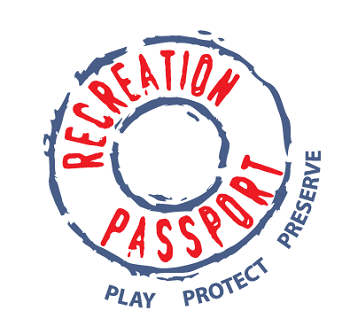Packing up for a camping trip. Fishing from your favorite pier. Parking the car, ready to enjoy thousands of miles of motorized and nonmotorized trails or drop your boat in the water …
Those are just a few outdoor amenities and experiences that start with the Michigan Department of Natural Resources’ valued-packed Recreation Passport, which gives year-round vehicle access to 100-plus state parks and recreation areas, more than 1,000 state-managed boating access sites, 140-plus state forest campgrounds, and parking at thousands of miles of trails and other outdoor spaces.
Next month, people will see a slight increase in the cost of a Recreation Passport, but at just over a dollar per month it is still the best recreation deal around. Effective March 1, the Recreation Passport resident vehicle fee increases from $12 to $13 (and from $6 to $7 for motorcycles) – the first such increase since 2020.
The moderate fee change is a result of a statutory provision that ensures Recreation Passport funding keeps pace with the economy. Basically, the law says that the DNR does not determine the cost of the Recreation Passport; instead, fee adjustments are based on the Consumer Price Index, as determined by the federal Bureau of Labor Statistics. The notice of change was provided by the Michigan Department of Treasury in November.
March 1, the resident Recreation Passport fee will increase:
- From $12 to $13 for vehicles.
- From $6 to $7 for motorcycles.
- From $24 to $26 for two-year vehicle registrations.
| “The Recreation Passport model, introduced in 2010, provides a unique funding opportunity for the state’s parks and recreation system,” said Ron Olson, DNR Parks and Recreation chief. “In essence, the annual resident Recreation Passport was tied to the Secretary of State’s vehicle registration process,” he said. “Not only was the purchasing opportunity put in front of more residents, but the cost per vehicle also dropped significantly. That shift resulted in more purchases that ultimately better support these outdoor spaces and protect natural and cultural resources for the next generation.” In fiscal year 2022, 40% of eligible vehicles in Michigan had the Recreation Passport. All revenue generated by Recreation Passport sales goes into a restricted fund that supports state park infrastructure and operations, a local grant program for community recreation agencies, state forest campgrounds and nonmotorized pathways and trails, cultural and historic resource restoration, and marketing and promotion. |
Olson noted, too, that Michigan state parks are largely self-supporting. Approximately 97% of state parks funding is generated by user fees (including the Recreation Passport) and royalty revenues; just 3% comes from Michigan’s General Fund tax dollars.
Learn more about the Recreation Passport – how to get it, where it can take you, what it supports – at Michigan.gov/RecreationPassport.
- Laker Men’s Basketball Handle Kuyper 88-55 - December 23, 2024
- MYWAY Sault Bridge Brawl & NEMWA Regional Results - February 22, 2024
- Crawford County Prosecutor clears State Trooper in the fatal shooting of man earlier this month - February 23, 2023



